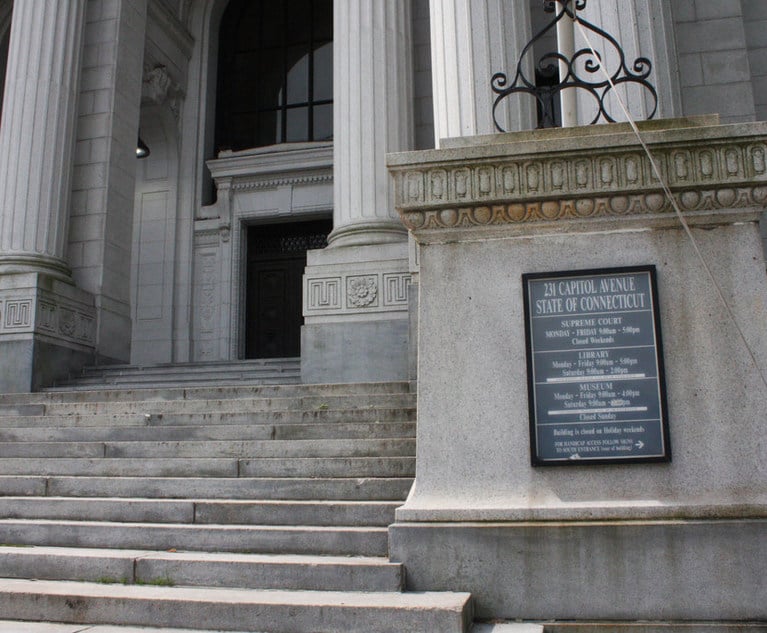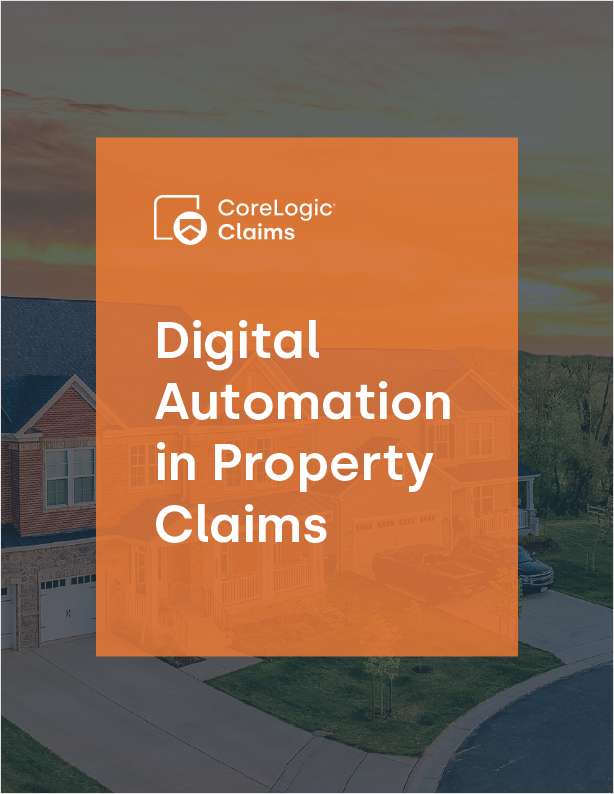Champerty by Any Other Name: Assessing the Risks of Litigation Funding
Third-party litigation funding, first popular across the pond in England and Wales, has grown into a major American industry. But attorneys and clients are forewarned there remain some risks.
March 06, 2020 at 04:41 PM
6 minute read
 Photo: Shutterstock
Photo: Shutterstock
The archaic common-law doctrine of champerty prohibits the funding of litigation by a third-party who has a financial interest in the outcome of the suit. Modern-day litigation funding, legal financing, professional funding or lawsuit loans—as the concept is variously known—is the process by which a litigant can finance its lawsuit by accepting an up-front payment of cash in exchange for a commitment to repay those funds from any recovery made in the litigation—plus a fee, typically ranging from 10% to 40% of that recovery. The funds so advanced can be used by the litigant to cover his living or medical expenses while awaiting settlement or judgment in his suit, or by his attorney to pay the usual costs of getting that result. The arrangement is almost always non-recourse; i.e., no recovery by settlement or judgment equals no repayment.
Third-party litigation funding has been popular in England and Wales since the 1960s, but only manifested itself in this country about 20 years ago. Since then, its use in the American judicial system has grown dramatically; the largest such financing firm, founded only 10 years ago, reported revenues of $205 million in the first half of last year alone. The industry claims a $5 billion market in the United States and even has its own trade association—the American Legal Finance Association. But how can that be, since, on its face, third-party litigation funding constitutes the forbidden activity of champerty? The answer is twofold.
First, champerty had its origins in the medieval fear that corrupt feudal lords would buy up claims, perpetrate fraudulent lawsuits and wrongly influence the courts so as to obtain unjust judgments—and that concern simply rings hollow in the wake of modern reforms to the judicial system and society's view of litigation less as a social ill and more as an appropriate way to resolve disputes. In fact, most states, by case law or statute, have expressly abandoned the prohibition against champerty.
Second, lawsuit financing, initially viewed with substantial skepticism by bar associations and chambers of commerce alike, overcame early resistance by presenting itself as a vehicle for leveling the litigation playing field. No longer need the David, with limited resources, abandon his claim or settle on unfavorable terms when confronted by the Goliath so much better prepared to fight the war of attrition litigation often becomes, now that David had a funding source. Of course, the contingent fee arrangement always did the same thing, but now would-be plaintiffs, who could not find a lawyer to take a cases on that basis—or even the law firms that had maxed out on the number of contingent fee cases they could maintain at one time—had available to them this alternative funding source.
But, of course, it is not that simple. Is there really room for a third party in the attorney-client relationship, which is so restrained and defined by common-law fiduciary duty and rules of professional conduct? Chief among such concerns are the lawyer's duty to preserve the attorney-client privilege, protect confidential information acquired in the relationship, and, most importantly, exercise independent professional judgment to protect and advance the best interests of the client at all times. The potential for conflict between those obligations and the very real interest the third-party funder has in that client's claim has rightly concerned conscientious lawyers and disciplinary commissions alike and eventually gained the attention of the American Bar Association.
In 2012, after several years of hearings and research, the ABA Commission on Ethics 20/20 issued its Informational Report to the House of Delegates, which exhaustively addressed what it called alternative litigation financing.
The commission started with the threshold issue of the lawyer assisting his client in finding litigation funding (permitted under most state ethics opinions) and noted the immediate potential for conflict if the lawyer benefited directly or indirectly from that financing transaction (of course, prohibited). The pitfalls continued from there. For example, the funding agreement may purport to restrict the client's right to terminate his lawyer. Can he contract away that right, which is recognized as absolute in most jurisdictions?
Of course, the real minefield is encountered in the management of the litigation, when the lawyer is confronted with hundreds of decisions ranging from whether and when to file the lawsuit to when and on what terms to settle. The commission's report attempts to provide guidance in some of those situations. Of course, if the third-party funder disclaims any involvement whatsoever in the management of the lawsuit—as many expressly do in the financing agreement—the attorney then continues to exercise independent judgment in accordance with obligations under the rules of professional conduct.
But what if the client has ceded decision-making authority to the litigation funder under the terms of the financing agreement? The additional burden that places on the attorney in the proper discharge of his obligations is painfully obvious. The issues raised by attempts to reconcile the professional obligations of the attorney with the business motivations of the litigation funder are many and serious—as the ABA report makes clear—and beyond the limitations of this editorial.
However unsettling many practicing lawyers may find the relatively new concept of litigation funding and the three-party relationship it creates going forward in litigation, the business model appears to be here to stay. State courts, bar associations, ethics committees, and disciplinary boards have not deemed the inherent dangers and jeopardy to the attorney-client relationship litigation funding creates to be so serious as to warrant its outright prohibition. And the high profits these arrangements have thus far generated for the funders (at least for those who can accurately handicap a lawsuit's outcome) have provided the incentive to stay and grow.
None of that, unfortunately, changes the potential exposure for the attorney who finds himself with a client contemplating or requiring litigation funding by a third party. That lawyer should proceed with great caution, because the risks are many and the consequences of missteps severe. The attorney must become familiar with the ethics opinions and case law applicable to litigation funding in her jurisdiction before she invites that third party into her attorney-client relationship. To do otherwise is to invite disaster. And even then, the proper discharge of ethical obligations during representation will likely be significantly more difficult than it would otherwise be.
This content has been archived. It is available through our partners, LexisNexis® and Bloomberg Law.
To view this content, please continue to their sites.
Not a Lexis Subscriber?
Subscribe Now
Not a Bloomberg Law Subscriber?
Subscribe Now
NOT FOR REPRINT
© 2025 ALM Global, LLC, All Rights Reserved. Request academic re-use from www.copyright.com. All other uses, submit a request to [email protected]. For more information visit Asset & Logo Licensing.
You Might Like
View All
Coerced Confessions and the Burden of Proof Beyond Reasonable Doubt


35 Years After CT's Affordable Housing Act, Progress Remains a Struggle
4 minute readTrending Stories
- 1States Accuse Trump of Thwarting Court's Funding Restoration Order
- 2Microsoft Becomes Latest Tech Company to Face Claims of Stealing Marketing Commissions From Influencers
- 3Coral Gables Attorney Busted for Stalking Lawyer
- 4Trump's DOJ Delays Releasing Jan. 6 FBI Agents List Under Consent Order
- 5Securities Report Says That 2024 Settlements Passed a Total of $5.2B
Who Got The Work
J. Brugh Lower of Gibbons has entered an appearance for industrial equipment supplier Devco Corporation in a pending trademark infringement lawsuit. The suit, accusing the defendant of selling knock-off Graco products, was filed Dec. 18 in New Jersey District Court by Rivkin Radler on behalf of Graco Inc. and Graco Minnesota. The case, assigned to U.S. District Judge Zahid N. Quraishi, is 3:24-cv-11294, Graco Inc. et al v. Devco Corporation.
Who Got The Work
Rebecca Maller-Stein and Kent A. Yalowitz of Arnold & Porter Kaye Scholer have entered their appearances for Hanaco Venture Capital and its executives, Lior Prosor and David Frankel, in a pending securities lawsuit. The action, filed on Dec. 24 in New York Southern District Court by Zell, Aron & Co. on behalf of Goldeneye Advisors, accuses the defendants of negligently and fraudulently managing the plaintiff's $1 million investment. The case, assigned to U.S. District Judge Vernon S. Broderick, is 1:24-cv-09918, Goldeneye Advisors, LLC v. Hanaco Venture Capital, Ltd. et al.
Who Got The Work
Attorneys from A&O Shearman has stepped in as defense counsel for Toronto-Dominion Bank and other defendants in a pending securities class action. The suit, filed Dec. 11 in New York Southern District Court by Bleichmar Fonti & Auld, accuses the defendants of concealing the bank's 'pervasive' deficiencies in regards to its compliance with the Bank Secrecy Act and the quality of its anti-money laundering controls. The case, assigned to U.S. District Judge Arun Subramanian, is 1:24-cv-09445, Gonzalez v. The Toronto-Dominion Bank et al.
Who Got The Work
Crown Castle International, a Pennsylvania company providing shared communications infrastructure, has turned to Luke D. Wolf of Gordon Rees Scully Mansukhani to fend off a pending breach-of-contract lawsuit. The court action, filed Nov. 25 in Michigan Eastern District Court by Hooper Hathaway PC on behalf of The Town Residences LLC, accuses Crown Castle of failing to transfer approximately $30,000 in utility payments from T-Mobile in breach of a roof-top lease and assignment agreement. The case, assigned to U.S. District Judge Susan K. Declercq, is 2:24-cv-13131, The Town Residences LLC v. T-Mobile US, Inc. et al.
Who Got The Work
Wilfred P. Coronato and Daniel M. Schwartz of McCarter & English have stepped in as defense counsel to Electrolux Home Products Inc. in a pending product liability lawsuit. The court action, filed Nov. 26 in New York Eastern District Court by Poulos Lopiccolo PC and Nagel Rice LLP on behalf of David Stern, alleges that the defendant's refrigerators’ drawers and shelving repeatedly break and fall apart within months after purchase. The case, assigned to U.S. District Judge Joan M. Azrack, is 2:24-cv-08204, Stern v. Electrolux Home Products, Inc.
Featured Firms
Law Offices of Gary Martin Hays & Associates, P.C.
(470) 294-1674
Law Offices of Mark E. Salomone
(857) 444-6468
Smith & Hassler
(713) 739-1250











